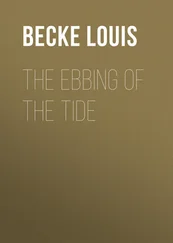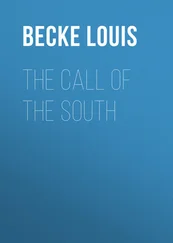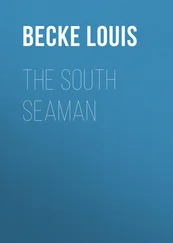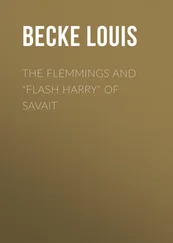Louis Becke - The Tapu Of Banderah
Здесь есть возможность читать онлайн «Louis Becke - The Tapu Of Banderah» — ознакомительный отрывок электронной книги совершенно бесплатно, а после прочтения отрывка купить полную версию. В некоторых случаях можно слушать аудио, скачать через торрент в формате fb2 и присутствует краткое содержание. Жанр: foreign_prose, literature_19, foreign_antique, на английском языке. Описание произведения, (предисловие) а так же отзывы посетителей доступны на портале библиотеки ЛибКат.
- Название:The Tapu Of Banderah
- Автор:
- Жанр:
- Год:неизвестен
- ISBN:нет данных
- Рейтинг книги:4 / 5. Голосов: 1
-
Избранное:Добавить в избранное
- Отзывы:
-
Ваша оценка:
- 80
- 1
- 2
- 3
- 4
- 5
The Tapu Of Banderah: краткое содержание, описание и аннотация
Предлагаем к чтению аннотацию, описание, краткое содержание или предисловие (зависит от того, что написал сам автор книги «The Tapu Of Banderah»). Если вы не нашли необходимую информацию о книге — напишите в комментариях, мы постараемся отыскать её.
The Tapu Of Banderah — читать онлайн ознакомительный отрывок
Ниже представлен текст книги, разбитый по страницам. Система сохранения места последней прочитанной страницы, позволяет с удобством читать онлайн бесплатно книгу «The Tapu Of Banderah», без необходимости каждый раз заново искать на чём Вы остановились. Поставьте закладку, и сможете в любой момент перейти на страницу, на которой закончили чтение.
Интервал:
Закладка:
“Good-day, gentlemen; I scarcely hoped to have the pleasure of meeting Europeans at this place—and certainly never imagined that pleasure would be enhanced by the presence of a lady,” he added as he caught sight of Mrs. Deighton standing apart some little distance from the others.
“I am pleased to meet you, sir,” said the missionary, constituting himself spokesman for the others; “you are welcome, sir, very welcome to Mayou, and to anything that it lies in our power to furnish you with for your—schooner, or should I say yacht, for such, by her handsome appearance, I presume she is.”
The visitor, who was a handsome, fair-haired man, with a blonde moustache and blue eyes, bowed his thanks, and then said, “May I have the honour to introduce myself. My name is De Vere.”
“And I am the Rev. Wilfrid Deighton, missionary in charge of this island. My two–” (here he hesitated a moment before the next word) “friends are Mr. Peter Schwartzkoff and Mr. Nathaniel Burrowes.”
“Delighted to meet you,” said Mr. de Vere, bowing politely to the lady, but extending a white, shapely hand to the men; “and now I must tell you that I shall be very glad to avail myself, Mr. Deighton, of your kind offer. We are in want of water, and anything in the way of vegetables, etcetera, that we can get. We intend, however, to stay here a few days and refit. Having been in very bad weather coming through the southern part of the Solomon Group we must effect repairs.”
“Might I inquire, mister,” asked Burrowes, “ef your vessel is a trader, or jest a pleasure schooner, as the parson here says?”
“Mr. Deighton is quite correct,” said Mr. de Vere, with another graceful bow; “the Starlight is a yacht I can quite understand your not being able to make her out She was originally built for the navy as a gunboat, but was sold in Sydney, after some years’ service. I bought her and had her altered into a yacht to cruise about these delightful and beautiful South Sea Islands. My friend, the Honourable John Morcombe-Lycett, accompanies me. Our English yachting experience had much to do with our determination to make a cruise down here. In fact,” and here Mr. de Vere showed his white, even teeth in a smile, and stroked his drooping blonde moustache, “we left London with the intention of chartering a vessel in Sydney for a cruise among the islands. Mr. Morcombe-Lycett is, however, very unwell to-day, and so has not landed, but here am I; and I am very happy indeed to make your acquaintance.”
Then, turning towards the boat, he called out to the officer who had brought him, “Come ashore for me at dinner-time, Captain Sykes.”
II ~ A DIFFERENCE OF OPINION
A few hours later Mr. de Vere was on very friendly terms with Mr. and Mrs. Deighton, who had carried him off to the mission house, after the boat returned to the schooner. Before he accompanied them, however, he told Messrs. Burrowes and Schwartzkoff, as he shook hands, that he would not fail to visit them later on in the day at their respective houses. And both Peter, and the American, who on any other occasion would have been justly indignant at any white visitor not a missionary himself foregoing, even for a short time, the pleasure of their society for that of a “blarsted missionary,” shook hands with him most vigorously, and said they would be proud to see him. Then they hurried off homewards.
Peter’s house and trading station lay midway between that of Charlie Blount and the American’s, but instead of making for his own place, Peter, to the surprise of Blount, who was now standing at his door watching them, went inside Burrowes’ house.
“That’s d–d curious, now,” said Blount, in English, to one of his half-caste daughters, a girl of eighteen; “those two fellows hate each other like poison. I’ve never known the Dutchman go into the Yankee’s house, or the Yankee go into his, for the past two years, and here they are now as thick as thieves! I wonder what infernal roguery they are up to?”
Charlie Blount’s amazement was perfectly natural, The German and American did dislike each other most intensely. Neither of them had lived so long on Mayou as Blount, but each was trying hard to work the other man off the island by accusing him to the natives of cheating them. As a matter of fact they were both scoundrels, but Banderah, the chief of Mayou, who was fond of white men, managed to keep a hollow peace between them. He was perfectly well aware that both of them cheated himself and his people, but as long as their cheating was practised moderately he did not mind. In Blount, however, he had the fullest confidence, and this good feeling was shared with him by every native on the island.
Perhaps, had Blount been a witness of what occurred when the boat landed, his suspicion of his fellow-traders’ honesty would have been considerably augmented. For while the missionary and Mr. de Vere were bandying compliments, the German and American were exchanging signs with the officer who was in charge of the boat, and whom De Vere addressed as “Captain Sykes.” The American, indeed, had started down the beach to speak to him, when Mr. de Vere called out to him to return to the ship, and Captain Sykes, with a gesture signifying that he would see Burrowes later on, swung round the boat’s head and gave the word to his Kanaka crew to give way. As if quite satisfied with this dumb promise, the American returned to the group he had just left, and then the moment the missionary, Mrs. Deighton, and De Vere had gone, he and the German started off together.
The moment they entered the American’s house, Burrowes sat down on the table and the German on a gin case.
Конец ознакомительного фрагмента.
Текст предоставлен ООО «ЛитРес».
Прочитайте эту книгу целиком, на ЛитРес.
Безопасно оплатить книгу можно банковской картой Visa, MasterCard, Maestro, со счета мобильного телефона, с платежного терминала, в салоне МТС или Связной, через PayPal, WebMoney, Яндекс.Деньги, QIWI Кошелек, бонусными картами или другим удобным Вам способом.
Интервал:
Закладка:
Похожие книги на «The Tapu Of Banderah»
Представляем Вашему вниманию похожие книги на «The Tapu Of Banderah» списком для выбора. Мы отобрали схожую по названию и смыслу литературу в надежде предоставить читателям больше вариантов отыскать новые, интересные, ещё непрочитанные произведения.
Обсуждение, отзывы о книге «The Tapu Of Banderah» и просто собственные мнения читателей. Оставьте ваши комментарии, напишите, что Вы думаете о произведении, его смысле или главных героях. Укажите что конкретно понравилось, а что нет, и почему Вы так считаете.












